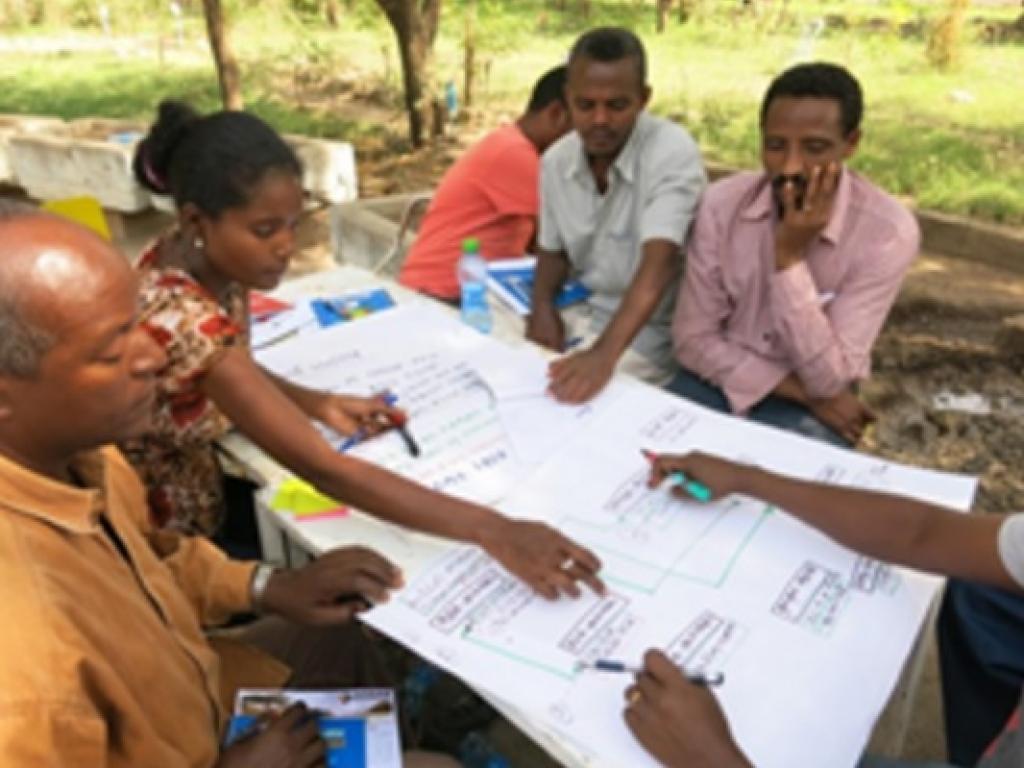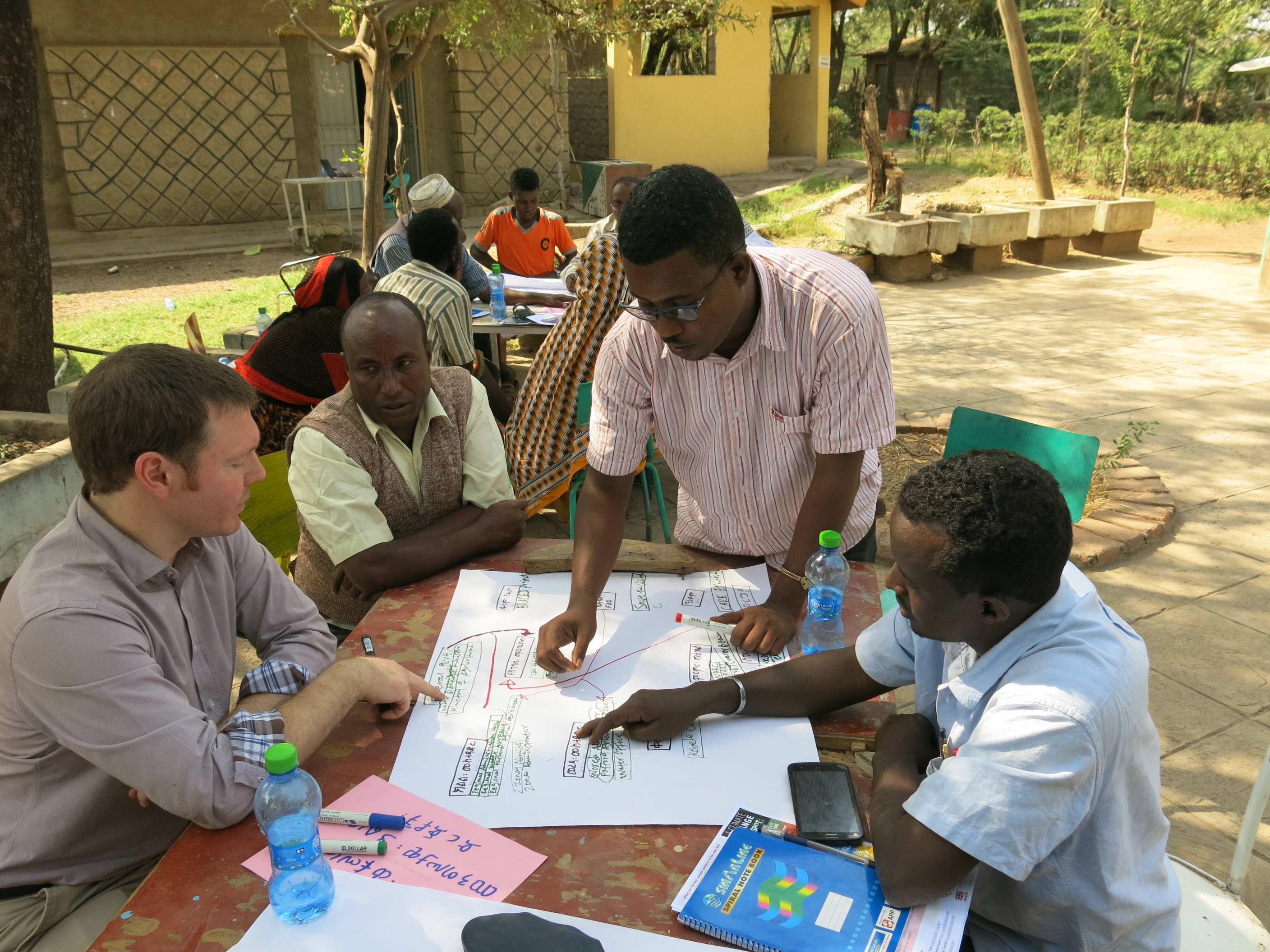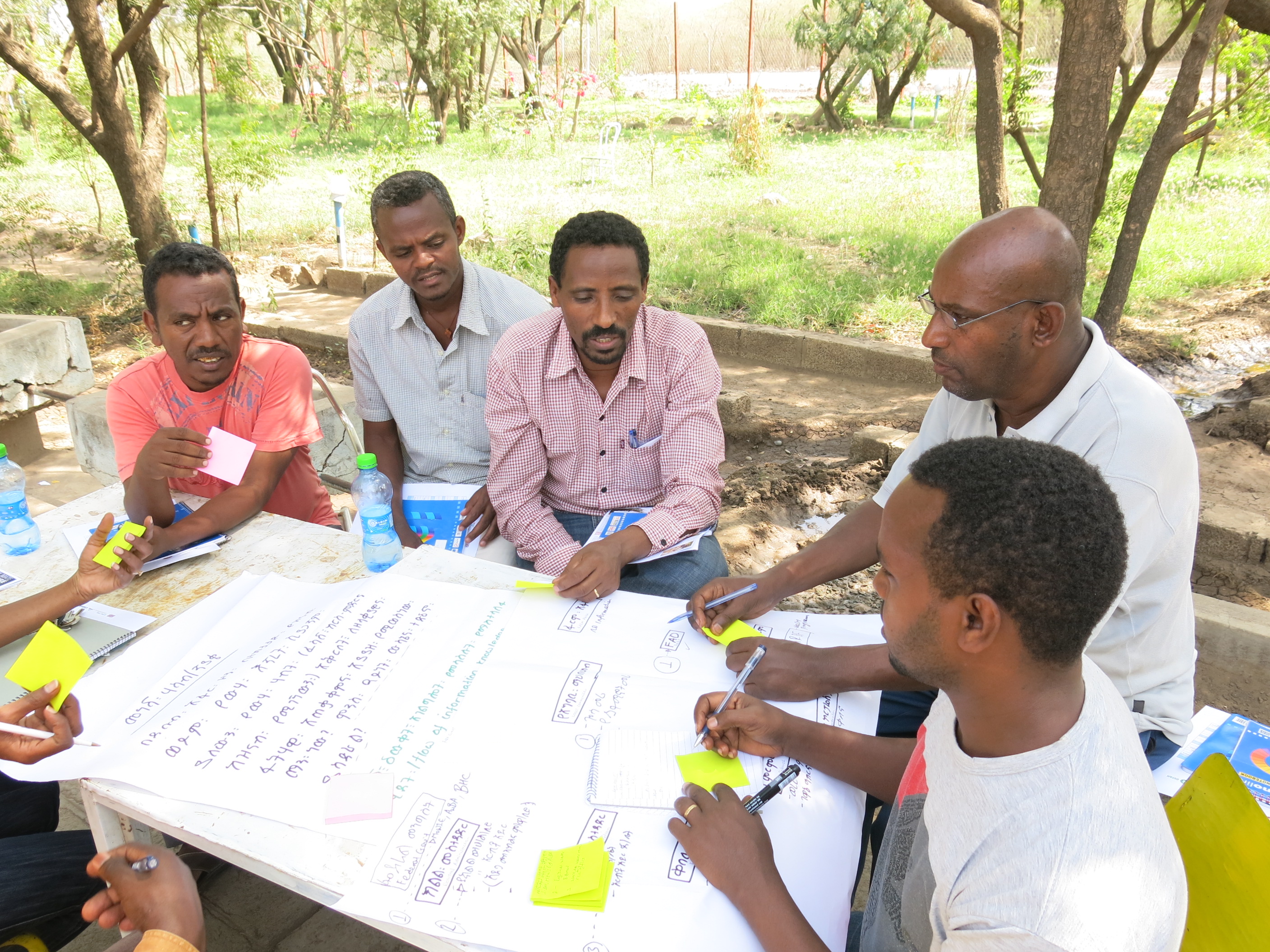Stakeholder Engagements in Ethiopia


Workshops were held in Addis Ababa and Awash in Ethiopia. The overall objective of the workshops was to identify stakeholders relevant to ASSAR in Ethiopia. The aim was to understand how these stakeholders interact with one another and influence decision making, policies and practice.
At both workshops, Jesse DeMaria-Kinney, Research-into-Use Coordinator for ASSAR based at Oxfam, presented the Net-Map toolbox (see Box 1). In addition, with regard to water resource access, use and management, he explained the specific question that the participants were asked to answer:
In times of increasing rainfall variability in semi-arid regions, who and what influences how water
access and use can be equitably and sustainably managed for vulnerable communities?
This topic is particularly relevant to vulnerable communities in the drought-affected parts of semi-arid regions of Ethiopia.
During the workshops, participants were separated into groups in which they discussed the key actors setting the agenda, using different colours to add to and delete from existing lists created by the East Africa research team. For each listed organisation, participants identified flows of information, services, advice, funding and line of authority. Participants linked organisations on the flipcharts with colour-coded lines, using arrowheads to show the direction of these different flows.
National-level workshop in Addis Ababa
In Addis Ababa, the first group of participants was a research group comprising individuals from academia and government institutions. The second group was an NGO group with individuals from international and national NGOs.
The groups had both similarities and differences in their perceptions of which organisations had the most influence:
-
Interestingly, both groups considered the Ministry of Foreign and Pastoralist Affairs (MoFPA) to be a very influential organisation.
-
The research group considered the Ministry of Finance and Economic Development (MoFED), a well-known funding body, to have lower levels of influence than that suggested by the NGO group, which highlighted the organisation’s importance.
-
The NGO group rated the Ministry of Water, Irrigation and Electricity (MoWIE) as the most influential organisation given its role in decision making and its control of water-related activities from local to national levels. The NGO group drew links between climate change and resource degradation, and stressed the need to educate people around family planning. This issue was hotly debated by participants, some of whom saw it as something to be decided at the household level. Local communities were not discussed in either group, as government ministries don’t have a direct link to them.
Local-level workshop in Awash
The local stakeholder event was held at the Awash Basin Authority meeting hall in Werer on February 18, 2016. The presentation was given partly in English and partly in Amharic, and was then translated into Afaragna, so that everyone present could understand it.

After the presentation, participants were separated into four groups - two government groups, one NGO group and one local community group. As for the Addis Ababa workshop, the group were asked to identify influential stakeholders with regard to water access and management, but within the specific context of Southern Afar.
It was clear from the discussions that in the Southern Afar region, water is the most scarce resource. The lack of water has a large bearing on people’s livelihoods and the socioeconomic development of the region. Participants stated that, in addition to the current drought, the expansion of Ethiopia’s development programs (e.g. sugar cane production) is affecting access to grazing land. Moreover, it was claimed that Awash River’s water quality is very poor, because industries discharge their waste into the river, making it hazardous to use the river water for domestic purposes or to water livestock.
All four groups saw the lines of authority as top down, and stressed that the local community had very little influence over the issues affecting them.
With regard to the flow of information and funding:
-
Both government groups and the local community group identified the Awash Basin Authority as an influential organisation.
-
The importance of MoWIE was highlighted.
-
Woreda (local districts) and kebele (neighbourhoods) were also seen as playing important roles.
-
The NGO group was the only group to include zonal administration (between regional and woreda level) as an important actor.
-
Interestingly, the NGO group considered the local communities group to be very important but the local communities themselves saw their participation and influence as very restricted.
Conclusions
Based on the results of these mapping exercises, ASSAR needs to be aware of the centralised nature of water management structures in the region. For example, the groups in the national workshop didn’t consider local issues, but the groups in the local-level workshop did discuss national ministries. There is a need for national ministries to engage with woreda offices, and have working relationships with religious and clan leaders at village levels, to bring decision-making into all levels of governance. Finally, in terms of process, these mapping exercises helped to build links and strengthen trust among stakeholders, whilst making them aware of the work that ASSAR is undertaking.